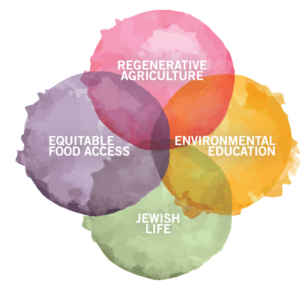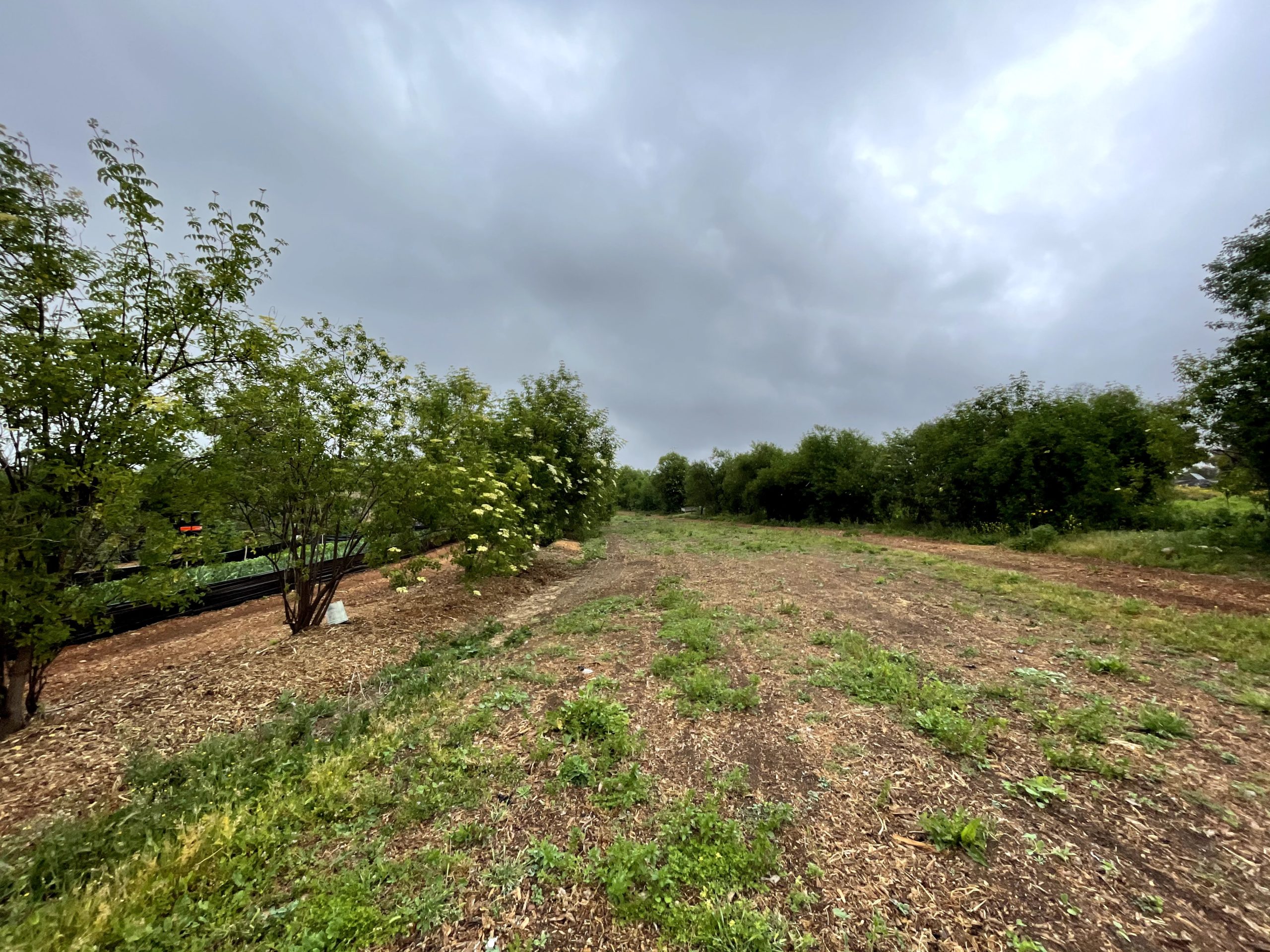Shmita 2021 at Coastal Roots Farm
Information extracted from The Hazon Shmita Sourcebook
Introduction to Coastal Roots Farm
Coastal Roots Farm is a nonprofit Jewish community farm and education center where we practice organic farming, share our harvest with those who lack access, deliver farm-based educational programs, and foster inclusive spaces for people of all backgrounds to learn and celebrate. We are located in Encinitas, CA on land we recognize as indigenous to the Kumeyaay and Luiseño peoples.

The Jewish Calendar and Jewish Agricultural Values
Cycles of time are central to Jewish life. At Coastal Roots Farm we are guided by Earth’s seasons, the cycle of plant and animal life, and the cycle of the Jewish calendar including holidays whose celebrations often integrate seasonal foods.
Additionally, the Farm was founded on ancient Jewish traditions that uplift our mission and inform how we grow food, care for plants and animals, and connect with our neighbors. We recognize how values such as Kayamut (ecological sustainability), Bal Taschit (ethical consumption), K’vod Bruit (the dignity of all creations), and Peah (lining the corners of our fields with food for the stranger and poor) may be applied universally, and we invite community members of all backgrounds to participate to join us in exploring and realizing them.
What is Shmita?
Shmita is a year-long Sabbatical practice that was introduced in the Torah and occurs on the last year of a seven-year cycle. The Shmita year began at the turn of the Jewish New Year (Rosh Hashana) on Tuesday, September 7, 2021 (Hebrew year 5782).
Similar to the weekly Shabbat (Jewish Sabbath), Shmita exists within a cycle of seven. Whereas Shabbat marks one day of rest following six days of work, Shmita marks one year of rest following six years of work. Literally translating to “release,” Shmita is rooted in agricultural and economic systems. In the Shmita year, debts are to be forgiven, agricultural lands are to lie fallow, private land holdings are to become open to the commons, and staples such as food storage and perennial harvests are to be freely redistributed and accessible to all.
While this practice is only mandatory in the land of Israel and on kosher farms, many organizations choose to uphold the spirit of Shmita because of its modern day lessons about environmentalism and justice.
Our Approach
At its core, Shmita presents a paradigm that is rooted in fair share, equal access, resource distribution, a gift economy, and the collective commons.
The modern-day agricultural perspective reminds us of our responsibilities as land stewards: we honor the role of soil, minerals, rocks, communities of fungi, bacteria, earthworms, water, and more in promoting diverse forms of life, and allowing the land as well as the laborers to rest provides rejuvenation needed for long-term sustainability.
The modern-day economic perspective promotes equity through the concept of “ownerlessness.” The practice of cancelling debts offers a reset, and a reminder that our economy does not belong to any one corporation, person, or government.
While the ancient application of Shmita is not always practical (e.g. at Coastal Roots Farm, we cannot continue to feed 30,000 community members if all our fields were to lie fallow), we believe many lessons can be gleaned and applied.
This Shmita year, we invite our community to explore alongside us participate programs that highlight the following themes:
- Pursuing justice through regenerative agricultural practices and increased food access
- Deepening our identity as land stewards by uplifting indigenous land and agricultural practices
- Expanding our community’s understanding of food by looking at diverse plants and the various roles they play in our ecosystem
